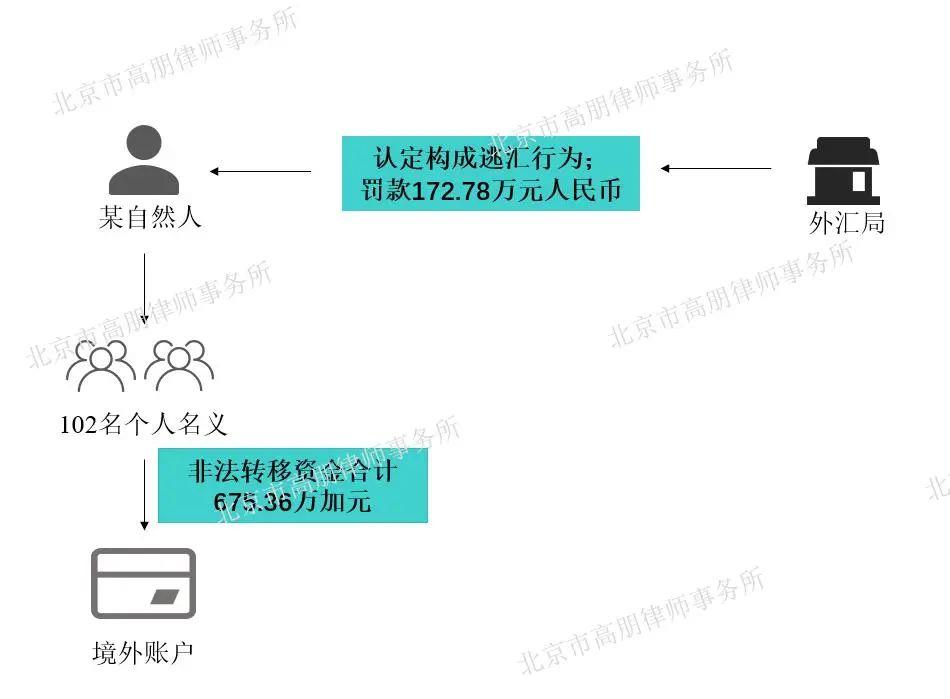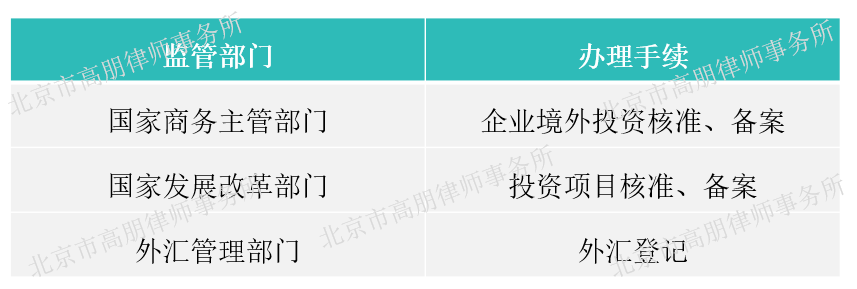What are the legal paths for transferring large amounts of funds from domestic to overseas? (Part 1)
From March to June 2022, a natural person used the names of 102 individuals to split and purchase foreign exchange and transfer funds to an overseas account, illegally transferring a total of CAD 6.7536 million. This behavior was found to violate Article 7 of the Personal Foreign Exchange Management Measures and constitutes foreign exchange evasion. The State Administration of Foreign Exchange, in accordance with Article 39 of the Foreign Exchange Management Regulations, imposed a fine of RMB 1.7278 million.

Currently, individuals or non-financial enterprises in China, regardless of their purpose (investment, immigration, inheritance, etc.), must meet certain conditions to transfer large amounts of funds exceeding $50000 into overseas accounts. So what are the legal and common ways for large funds to exit the country?
1、 Transfer method of immigrant property
The transfer of immigrant property refers to the following natural persons realizing their legitimate property owned within the country before obtaining immigration status and purchasing foreign exchange through designated foreign exchange banks for remittance:
(1) Moving abroad from mainland China and obtaining permanent residency;
(2) Traveling from the mainland to the Hong Kong Special Administrative Region and the Macao Special Administrative Region and obtaining permanent residency in the Special Administrative Region;
(3) Settle in Taiwan from mainland China.
For the transfer of migrants' property, documents such as identity certificate, income source certificate, property right certificate, tax certificate issued by the competent tax department, etc. shall be submitted, and the relevant funds shall be remitted in one or several times after obtaining the approval of the foreign exchange management department of the original registered residence registration before migration.
For the legitimate property obtained by individuals after immigration, funds can only be transferred overseas through the purchase of foreign exchange.
2、 International trade methods
Domestic entities can use genuine and compliant international trade methods to export large amounts of funds. International trade is mainly divided into trade in goods and trade in services.
If it is a trade in goods, enterprises need to apply for registration with the local foreign exchange bureau based on the "Application Form for Registration of Trade Foreign Exchange Revenue and Expenditure Enterprise Directory" and business license. The foreign exchange bureau divides the enterprises into three categories: A, B, and C. Class A enterprises are subject to convenient management measures, while Class B and C enterprises implement prudent supervision in terms of document review, business types and processing procedures, settlement methods, etc. When an enterprise makes foreign exchange payments due to trade in goods, the bank will conduct an audit based on the classification of the enterprise to confirm the authenticity, rationality, and logicality of the income and expenditure.
For service trade, banks will conduct a reasonable review of the authenticity of transaction documents and their consistency with foreign exchange receipts and payments. In order to promote trade liberalization and facilitation, China will cancel the registration of foreign trade operators handled by local commercial authorities from December 30, 2022. In addition, some regions have introduced policies to support banks in continuously optimizing the foreign exchange business processing process for service trade. For example, in the Lingang New Area of the China (Shanghai) Pilot Free Trade Zone and the China (Beijing) Pilot Free Trade Zone, for high-quality enterprises with a single service trade foreign exchange expenditure equivalent to more than 50000 US dollars, the "Service Trade and Other Projects External Payment Tax Filing Form" can be reviewed afterwards.
3、 Overseas Direct Investment (ODI) method
Overseas direct investment refers to the overseas investment activities that domestic enterprises can directly or through their controlled overseas enterprises, invest in assets, equity, or provide financing, guarantees, etc. Domestic enterprises conducting overseas direct investment need to go through relevant procedures at the following departments:

Related recommendations
- The China Securities Regulatory Commission plans to revise the regulatory measures for private equity funds to increase the threshold for investors
- The world will usher in the largest wealth transfer period in history: nearly $85 trillion in global wealth will be passed on to the next generation
- The Convention on the Cancellation of the Certification Requirements for Foreign Official Documents has come into effect in China
- The State Administration of Financial Supervision and Administration strengthens the supervision of non banking institutions, allowing overseas non-financial institutions to serve as investors in financial asset management companies


